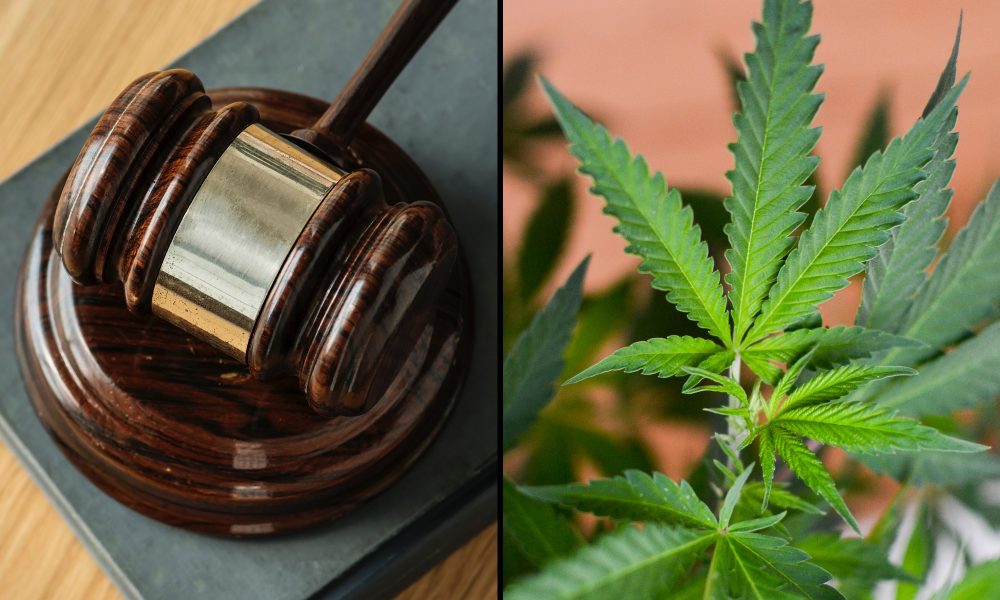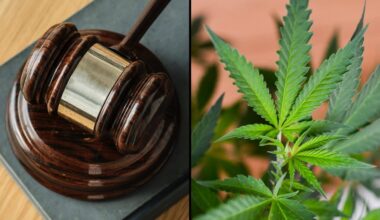Arkansas activists on Thursday filed a lawsuit with the state Supreme Court, seeking to secure ballot access for their proposed legalization initiative. The legal action comes a day after the state Board of Election Commissioners ruled that the measure’s ballot title and popular name are misleading.
Last week, the secretary of state had certified that Responsible Growth Arkansas collected enough valid signatures from registered voters to qualify the proposal for the ballot.
The campaign’s new lawsuit accuses the election commissioners board, members of which raised concerns about possible voter confusion over language related to issues such as THC limits, of “thwarting of the will of the people and their right to adopt laws by initiative.”
“That ‘power lies at the heart of our democratic institutions,’” it says. “The Board has attacked that heart through its incorrect rejection of the ballot title.”
The suit says officials violated the state constitution and ignored prior Supreme Court precedent, “choosing instead to apply an overly stringent approach that denied the wishes of hundreds of thousands of Arkansans to have the opportunity to vote on the Amendment.”
The campaign also filed a motion for expedited consideration of the lawsuit, as the November election is just three months away and ballots need to be printed ahead of time. The secretary of state’s deadline to certify amendments for the ballot to county officials is on August 25.
Earlier this week, Gov. Asa Hutchinson (R)—a former Drug Enforcement Administration head—suggested it was a given that the measure would end up before voters and urged police to help campaign against it.
Should they prevail in court in qualifying the measure, activists say they feel confident that voters will approve it this November, especially considering how the campaign was able to gather more than double the required signatures for ballot placement.
Here’s what the campaign’s marijuana legalization initiative would accomplish:
-Adults 21 and older could purchase and possess up to one ounce of cannabis from licensed retailers.
-Home cultivation would not be allowed.
-The measure would make a series of changes to the state’s existing medical cannabis program that was approved by voters in 2016, including a repeal of residency requirements to qualify as a patient in the state.
-The state Alcoholic Beverage Control (ABC) Division of the Department of Finance and Administration would be responsible for regulating the program and issuing cannabis business licenses.
-Regulators would need to license existing medical cannabis dispensaries to also serve adult consumers, and also permit them to open another retail location for recreational marijuana sales only. A lottery system would award licenses for 40 additional adult-use retailers.
-There are no provisions to expunge or seal past criminal records for marijuana or to provide specific social equity licensing opportunities for people from communities harmed by the war on drugs.
-The state could impose up to a 10 percent supplemental tax on recreational cannabis sales, in addition to the existing state and local sales tax.
-Tax revenue would be divided up between law enforcement (15 percent), the University of Arkansas for Medical Sciences (10 percent) and the state drug court program (five percent). The remaining revenue would go to the state general fund.
-People who own less than five percent of a marijuana businesses would no longer be subject to background checks.
-The legislature could not repeal of amend the state’s medical marijuana statutes without voter approval.
-Local governments could hold elections to prohibit adult-use retailers in their jurisdiction if voters approve the decision.
-Individuals could now own stake in more than 18 dispensaries.
-There would be advertising and packaging restrictions, including a requirement that marijuana products must be sold in tamper-resistant packages.
-Dispensaries would be able to cultivate and store up to 100 seedings, instead of 50 as prescribed under the current medical cannabis law.
A former Arkansas Democratic House minority leader, Eddie Armstrong, is behind the Responsible Growth Arkansas constitutional amendment, which he filed in January.
The group is just one of several campaigns that have pursued cannabis reform through the ballot this year, though backers of competing initiatives have since acknowledged they wouldn’t be able to collect enough signatures to qualify this year.
—
Marijuana Moment is tracking more than 1,500 cannabis, psychedelics and drug policy bills in state legislatures and Congress this year. Patreon supporters pledging at least $25/month get access to our interactive maps, charts and hearing calendar so they don’t miss any developments.![]()
Learn more about our marijuana bill tracker and become a supporter on Patreon to get access.
—
Supporters of the separate campaigns, Arkansas True Grass and Arkansans for Marijuana Reform, have raised concerns with the provisions of the Responsible Growth Arkansas initiative, suggesting it would favor big businesses in the existing medical cannabis industry. Some have said they may look to 2024 to try again with their own approaches.
Lancaster previously told Marijuana Moment that the campaign hopes that won’t be necessary. His campaign feels that the constitutional amendment provides a sound infrastructure for reform that prioritizes regulations—and the plan is to push for further reforms in the legislature if voters approve legalization at the polls. That would include efforts to promote expungements, which isn’t addressed by the initiative.
Meanwhile, a poll released in February found that 54 percent of Arkansans favor full adult-use legalization, compared to 32 percent who said it should be legal for medical use only and just around 11 percent who said it should be outright illegal.
Arkansas is also not the only state where voters may see drug policy reform measures on their November ballots:
Colorado voters will have the chance to decide on a historic ballot initiative this November to legalize psychedelics and create licensed psilocybin “healing centers” where people can use the substance for therapeutic purposes.
In May, South Dakota officials certified that activists turned in a sufficient number of signatures to qualify a marijuana legalization measure for the November ballot.
Maryland lawmakers passed legislation this year, which the governor allowed to go into effect without his signature, that will put the issue of cannabis legalization before voters this November.
North Dakota activists turned in what they believe to be enough signatures to place a marijuana legalization initiative before voters.
Oklahoma activists also said they’ve submitted what they believe to be more than enough signatures to qualify a marijuana legalization initiative for the November ballot.
Nebraska advocates recently submitted signatures for a pair of medical cannabis legalization initiatives. The campaign has faced several challenges along the way, including the loss of critical funding after a key donor passed away and a court battle of the state’s geographic requirements for ballot petitions.
A campaign to put cannabis legalization on the Missouri ballot may be in jeopardy, as early reporting shows that activists are coming up short on the required signatures in key districts.
An initiative to legalize marijuana will not appear on Ohio’s November ballot, the campaign behind the measure announced in May. But activists did reach a settlement with state officials in a legal challenge that will give them a chance to hit the ground running in 2023.
Michigan activists announced in June that they will no longer be pursuing a statewide psychedelics legalization ballot initiative for this year’s election and will instead focus on qualifying the measure to go before voters in 2024.
The campaign behind an effort to decriminalize drugs and expand treatment and recovery services in Washington State said in June that it has halted its push to qualify an initiative for November’s ballot.
While Wyoming activists said earlier this year that they made solid progress in collecting signatures for a pair of ballot initiatives to decriminalize marijuana possession and legalize medical cannabis, they didn’t get enough to make the 2022 ballot deadline and will be aiming for 2024 while simultaneously pushing the legislature to advance reform even sooner.
In March, California activists announced that they came up short on collecting enough signatures to qualify a measure to legalize psilocybin mushrooms for the state’s November ballot, though they aren’t giving up on a future election cycle bid.
Meanwhile, there are various local reforms that activists want to see voters decide on this November—including local marijuana decriminalization ordinances in Ohio, West Virginia and Texas.
Photo elements courtesy of rawpixel and Philip Steffan.
Medical Disclaimer:
The information provided in these blog posts is intended for general informational and educational purposes only. It is not a substitute for professional medical advice, diagnosis, or treatment. Always seek the advice of your physician or other qualified healthcare provider with any questions you may have regarding a medical condition. The use of any information provided in these blog posts is solely at your own risk. The authors and the website do not recommend or endorse any specific products, treatments, or procedures mentioned. Reliance on any information in these blog posts is solely at your own discretion.







